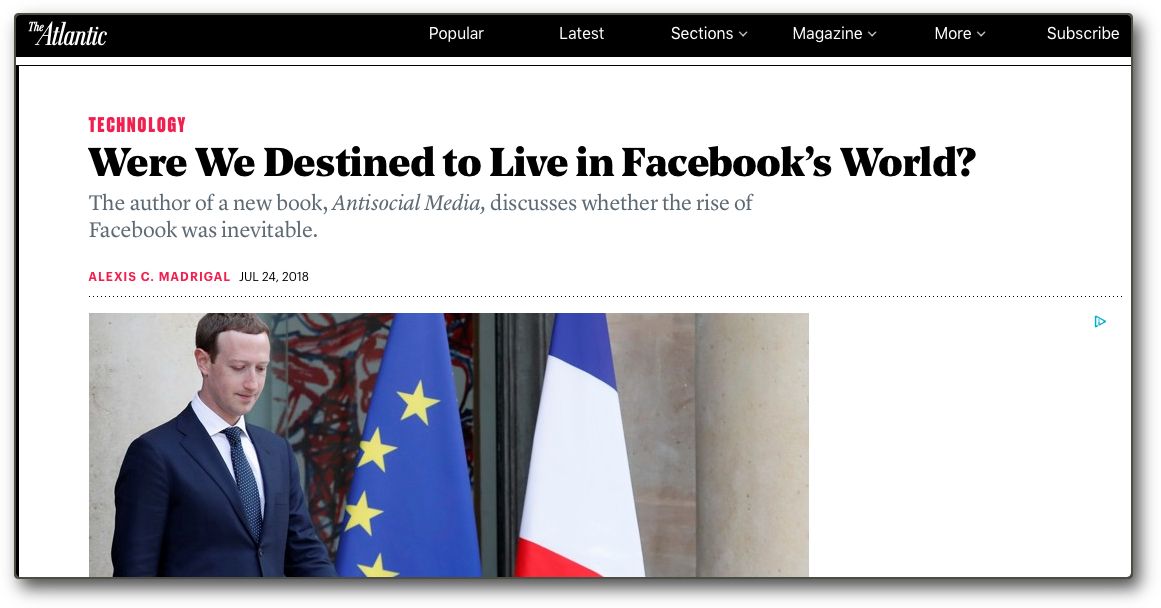Facebook distorts everything around the idea of engagement
Siva Vaidhyanathan, professor of media studies at the University of Virginia and the author of Antisocial Media: How Facebook Disconnects Us and Undermines Democracy, has some compelling theories on how Facebook became whaat it is.

While I've been busy doing the whole summer holiday thing, The Atlantic published an interesting interview between their writer Alexis Madrigal and Siva Vaidhyanathan, professor of media studies at the University of Virginia.
There's a couple of key points in there that are worth noting. Here's Vaidhyanathan talking about how Mark Zuckerberg views Facebook:
At some point, he decided that there is a universal principle here, and that is the principle of engagement. What we should really be paying attention to, what he will make sure we pay attention to, are the things that generate engagement. That was one of the core mistakes. You could measure engagement and you can’t measure things like depth of thought or kindness.
I've talked before about the problems with engagement as a central metric - but the underlying point here is that if you centre your business around engagement, it will favour things that create visible engagement. And a partisan piece of rhetoric will generate more signs of engagement than a balanced, in-depth piece that creates prolonged debate offline.
There's also a rather depressing prediction:
I think the only possibility of Facebook becoming less meaningful and important in people’s lives would occur among elites in North America and Western Europe. People who read The Atlantic or read long academic books about Facebook might reduce their usage. But I see nothing but growth and more dependence on Facebook and WhatsApp and Instagram in the rest of the world.
Much as I'd like to stop talking about Facebook, it's worth bearing in mind that, as a corporate entity, it's only growing more powerful as WhatsApp and Instagram spread. Thus, it's going to need continued attention, criticism and study for a while to come.
- Siva Vaidhyanathan's new book Antisocial Media: How Facebook Disconnects Us and Undermines Democracy is out now - and is on my reading list.





